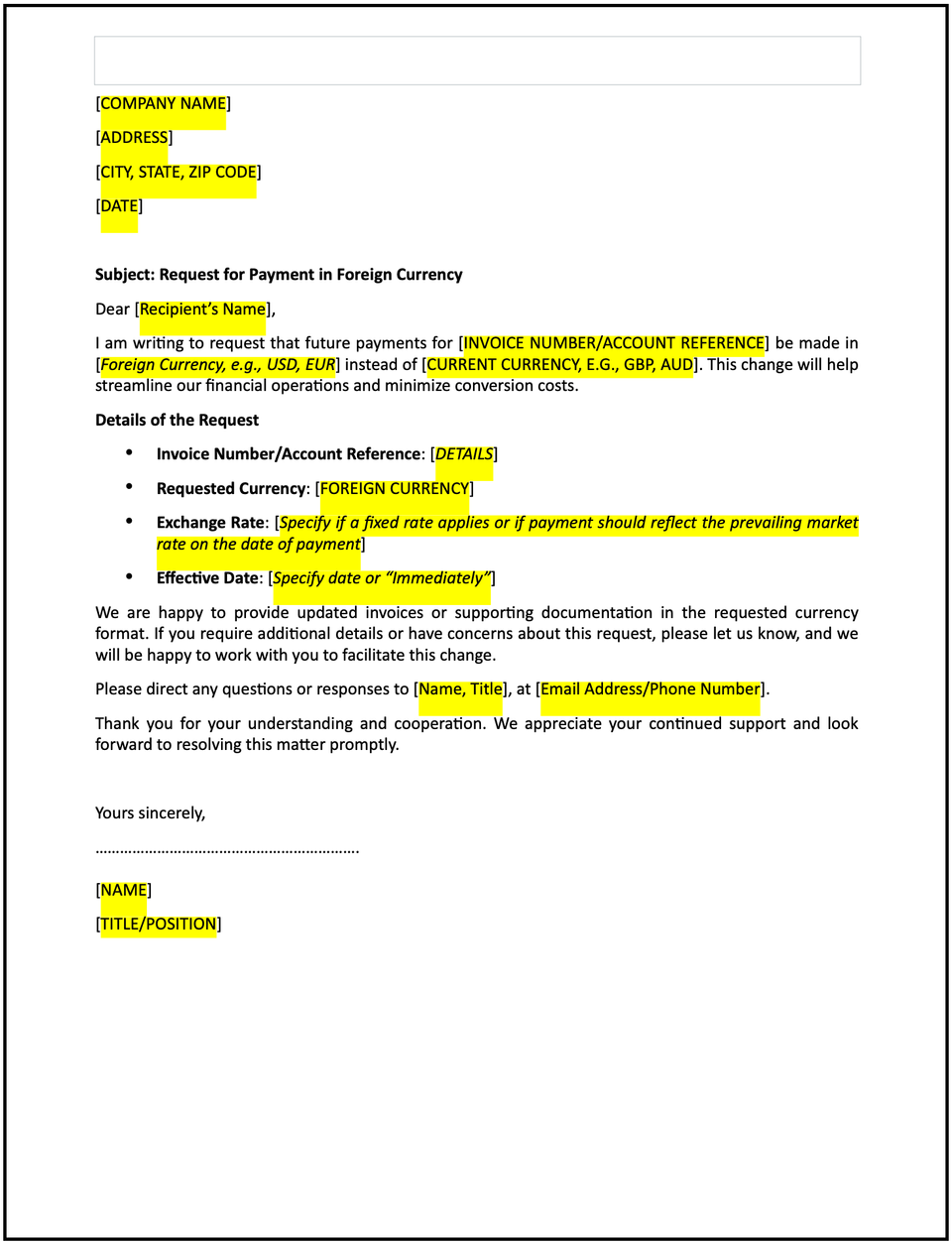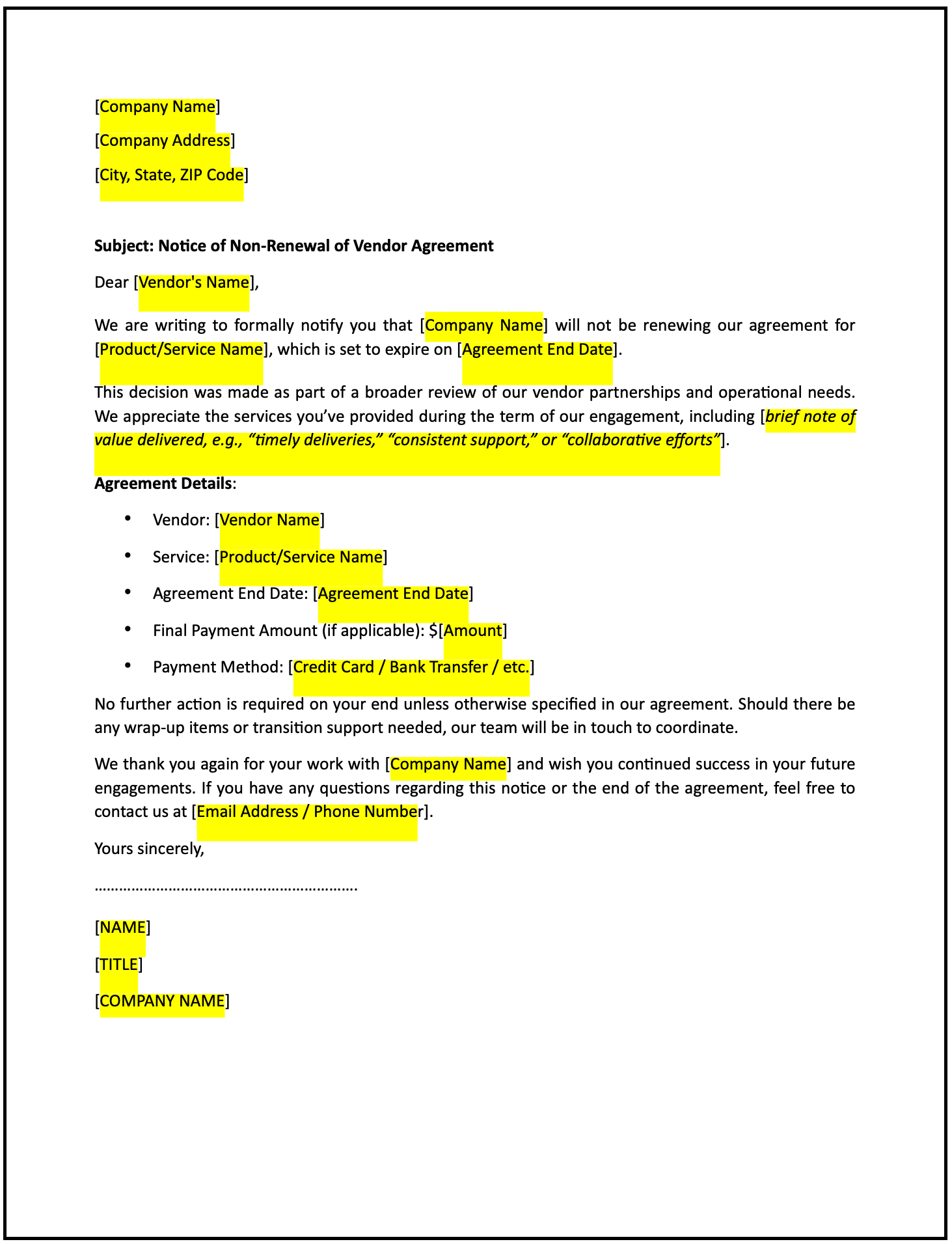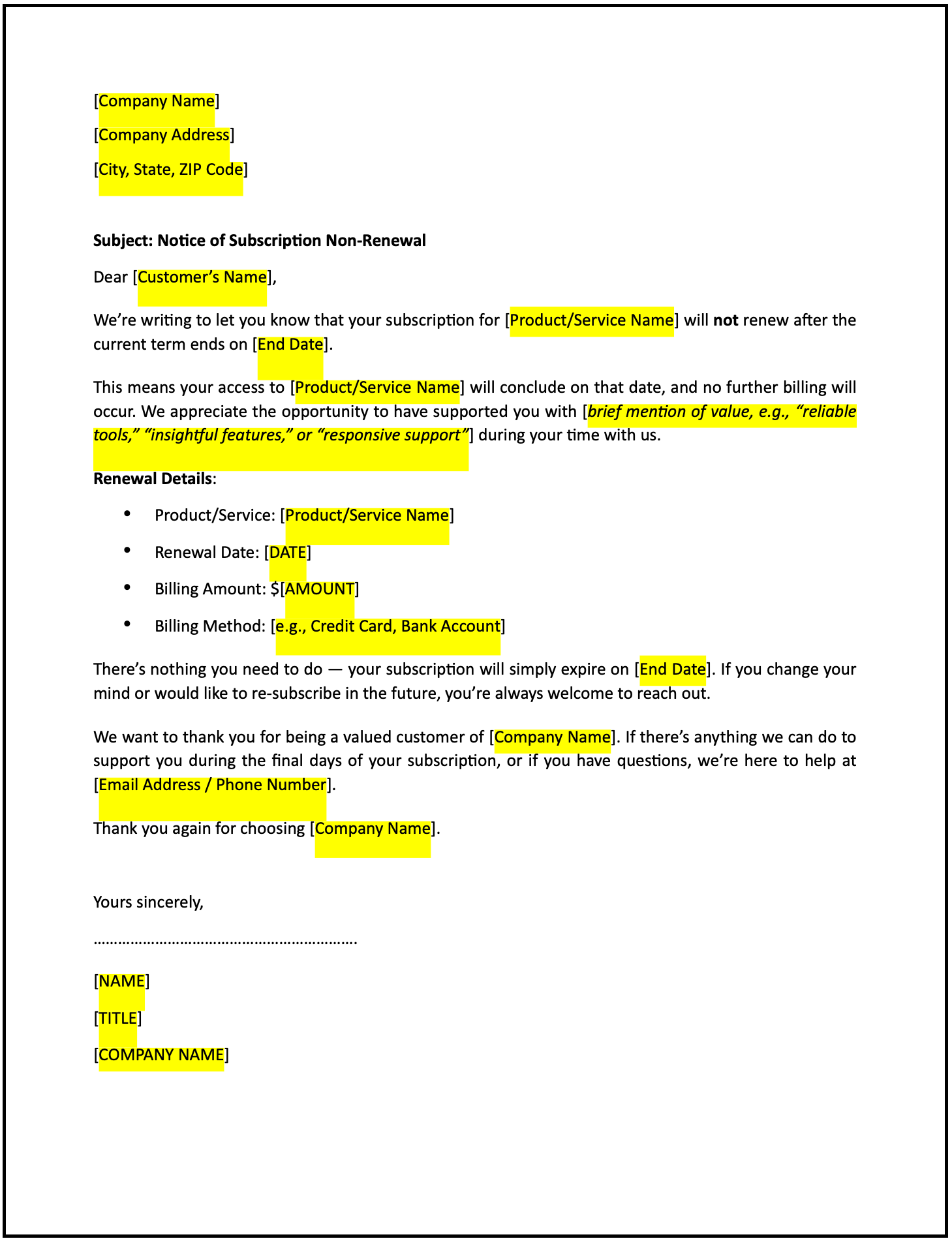Letter of request for payment in a foreign currency: Free template

Letter of request for payment in a foreign currency
A letter of request for payment in a foreign currency is a formal communication used to ask a customer, client, or business partner to make a payment in a specific foreign currency. This letter outlines the rationale for the request, provides necessary details, and ensures clarity while maintaining professionalism and fostering collaboration.
How to use this letter of request for payment in a foreign currency
- Open with an introduction: Address the recipient respectfully and state the purpose of the letter—requesting payment in a foreign currency.
- Provide context: Briefly explain the reason for the request, such as aligning with international transactions, currency preferences, or operational efficiency.
- Specify the details: Clearly mention the amount, the foreign currency to be used, and the equivalent value in the original currency, if applicable.
- Include payment instructions: Provide detailed payment instructions, including bank account information, SWIFT codes, or other relevant details.
- Reassure the recipient: Emphasize that this request is designed to streamline the transaction or meet specific operational needs.
- Request confirmation: Politely ask the recipient to acknowledge the request and confirm their ability to comply.
- Maintain a professional tone: Ensure the letter is clear, respectful, and focused on collaboration.
- Provide contact information: Include details for the recipient to reach out with questions or to discuss the request further.
Benefits of using a letter of request for payment in a foreign currency
This letter provides a professional and structured way to request foreign currency payments while ensuring clarity and maintaining a positive relationship. Here’s how it helps:
- Promotes transparency: Clearly outlining the request builds trust and minimizes misunderstandings.
- Reflects professionalism: A well-crafted letter demonstrates respect and attentiveness to financial agreements.
- Encourages cooperation: Providing clear instructions fosters compliance and a smoother transaction process.
- Supports international operations: Facilitating foreign currency payments aligns with global business practices.
- Maintains relationships: A polite and respectful approach preserves goodwill and fosters collaboration.
Tips for writing an effective letter of request for payment in a foreign currency
- Be specific: Clearly describe the payment details, including the amount, currency, and payment method.
- Use professional language: Maintain a respectful tone to foster understanding and cooperation.
- Provide context: Briefly explain the reason for the request to build credibility and goodwill.
- Include detailed instructions: Provide accurate payment information, such as bank details and exchange rates, if applicable.
- Request acknowledgment: Politely ask for confirmation of the recipient’s ability to comply with the request.
- Keep it concise: Focus on the key points while ensuring the tone is professional and collaborative.
Frequently asked questions (FAQs)
Q: What details should I include in this letter?
A: Include the amount, foreign currency requested, payment instructions, and the rationale for the request.
Q: Should I personalize the letter?
A: Yes, addressing the recipient directly ensures clarity and demonstrates attentiveness.
Q: Who typically sends this letter?
A: Business owners, financial managers, or account representatives typically send this letter.
Q: How formal should this letter be?
A: The tone should be professional yet approachable, focusing on collaboration and mutual understanding.
Q: When should this letter be sent?
A: Send the letter well in advance of the payment deadline to allow sufficient time for compliance.
Q: Can this letter include a conversion rate?
A: Yes, mentioning the exchange rate or providing an equivalent value in the original currency can help clarify the request.
Q: Is acknowledgment from the recipient required?
A: While not mandatory, requesting acknowledgment ensures the recipient is aware of and considering the request.
This article contains general legal information and does not contain legal advice. Cobrief is not a law firm or a substitute for an attorney or law firm. The law is complex and changes often. For legal advice, please ask a lawyer.


